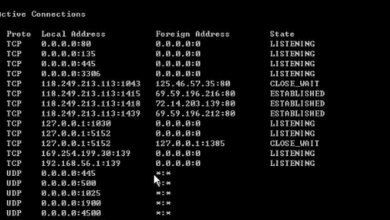The Importance Of Api 570 Certified Inspectors In Process Piping Compliance

Are you responsible for maintaining process piping compliance in your industry? If so, the importance of hiring API 570 certified inspectors cannot be overstated. These professionals possess a unique set of skills and knowledge that is essential to ensuring the safety and efficiency of your piping systems.
API 570 certification is a comprehensive program that focuses on the inspection, repair, alteration, and rerating of in-service piping systems. This certification is recognized worldwide and requires extensive training and experience to obtain. As a result, API 570 certified inspectors are experts in their field and are equipped with the tools necessary to identify potential problems before they become major issues.
In this article, we will explore the role of API 570 certified inspectors in process piping compliance, as well as their benefits and industry applications.
Key Takeaways
– API 570 certified inspectors play a critical role in ensuring the safety and efficiency of piping systems in industries.
– Hiring API 570 certified inspectors can help prevent accidents, save money on repairs, and reduce downtime caused by unexpected shutdowns.
– API 570 certified inspectors have a deep understanding of industry standards and regulations, ensuring compliance with all applicable codes and standards.
– Continuing education and professional development is crucial for staying current with emerging trends and technologies in process piping inspection.
Understanding the API 570 Certification
If you’re in the process piping industry, it’s crucial to understand that being API 570 certified means you have a comprehensive understanding of inspection techniques and compliance regulations. The API 570 exam is designed to test your knowledge of piping inspection codes, standards, and practices.
The certification process involves passing an exam that covers topics such as corrosion rates, materials selection, welding procedures, and nondestructive testing methods. To become an API 570 certified inspector, you must have a minimum of three years of experience in the petrochemical or related industries.
You also need to pass a rigorous examination that tests your knowledge of industry standards and best practices. Once you’ve earned your certification, you’ll be qualified to perform inspections on pressure vessels and piping systems in accordance with industry regulations.
With this certification under your belt, you can play a crucial role in ensuring that process piping systems are safe and compliant with all relevant codes and standards.
The Role of API 570 Certified Inspectors
As an API 570 certified inspector, your role is critical in ensuring the safety and compliance of in-service piping systems. You’ll be responsible for identifying potential hazards and evaluating the condition of the piping systems to prevent failures that could result in catastrophic consequences.
Additionally, you must ensure that all inspections and repairs are conducted in accordance with codes and standards to maintain integrity and reliability.
Identifying Potential Hazards
You need to be able to identify potential hazards when inspecting process piping, and that’s where API 570 certified inspectors come in. These professionals are equipped with the knowledge and skills necessary to detect common hazards associated with process piping systems, such as corrosion, cracking, and deformation.
Here are four things API 570 certified inspectors look for when identifying potential hazards:
1. Material degradation: Inspectors check for signs of material deterioration caused by chemical reactions or environmental factors.
2. Welding defects: They examine welds for cracks, porosity, and other defects that could compromise the structural integrity of the pipe.
3. Misalignments: Inspectors look for bends or deviations from straightness that can cause stress on the pipe.
4. Damage from external sources: They assess any damage caused by external forces such as impact or abrasion.
By identifying these potential hazards early on, API 570 certified inspectors can prevent accidents before they happen. They work closely with operators and maintenance personnel to implement prevention strategies aimed at maintaining a safe working environment.
Ensuring compliance with codes and standards is crucial in preventing accidents related to process piping systems.
Ensuring Compliance with Codes and Standards
Ensuring that process piping systems adhere to industry standards and regulations is crucial in maintaining a safe and efficient workplace. This involves designing process piping systems according to recognized codes and standards, such as those set by the American Petroleum Institute (API) and the American Society of Mechanical Engineers (ASME).
It also entails conducting code compliance audits to verify that the design meets regulatory requirements. Process piping design must be thorough and precise, taking into account factors such as pressure, temperature, corrosion resistance, and material selection. Compliance with codes and standards ensures that these factors are adequately addressed during the design phase.
Once installed, in-service piping systems must also be evaluated periodically for continued compliance with codes and standards. This involves monitoring for changes in operating conditions or modifications made to the system that may affect its integrity or safety.
Evaluating In-Service Piping Systems
Regularly checking the condition of installed pipeline systems is essential to ensure their continued safety and effectiveness. Evaluating in-service piping systems requires a thorough understanding of piping inspection techniques and corrosion prevention strategies.
Inspection techniques include visual inspection, ultrasonic testing, magnetic particle testing, radiographic testing, and eddy current testing. Each technique has its own advantages and disadvantages depending on the material being inspected, the location of the pipe, and the type of defect being searched for.
Corrosion prevention strategies include coatings, cathodic protection, chemical inhibitors, and design modifications. Coatings are applied to protect the pipe from corrosive environments while cathodic protection involves applying an electric current to prevent corrosion. Chemical inhibitors are added to the fluid flowing through the pipe to decrease corrosion rates while design modifications can be made to reduce areas where water or other corrosive fluids might collect.
By evaluating in-service piping systems using these techniques and strategies, potential issues can be identified before they become major problems that could result in injury or damage to equipment or property. This leads us into discussing why hiring API 570 certified inspectors is beneficial for process piping compliance.
Benefits of Hiring API 570 Certified Inspectors
When it comes to ensuring safety and compliance in your process piping, hiring API 570 certified inspectors is crucial. These professionals have the knowledge and expertise needed to identify potential issues and prevent costly equipment failures.
Additionally, they can help you meet regulatory requirements and avoid any legal or financial consequences that may arise from noncompliance. Trusting the skills of API 570 certified inspectors can provide you with peace of mind, knowing that your operation is running smoothly and efficiently.
Ensuring Safety and Compliance
You can’t afford to overlook the importance of having an API 570 certified inspector when it comes to maintaining safety and compliance in process piping.
A certified inspector is trained to identify potential hazards and understand safety protocols, ensuring your equipment is always up to code. With their expertise, you can rest assured that every step of the inspection process has been thoroughly executed, from risk assessment to determining the appropriate action plan.
By hiring an API 570 certified inspector, you’re taking proactive measures towards avoiding costly equipment failures down the line. This not only saves you money on repairs but also reduces downtime caused by unexpected shutdowns due to failed inspections.
With a certified inspector on board, you have access to a wealth of knowledge and experience that can be applied throughout your facility’s operations. Don’t wait until it’s too late; invest in the safety and compliance of your process piping with an API 570 certified inspector today.
Avoiding Costly Equipment Failures
Don’t let equipment failures cripple your business – take proactive measures to ensure the reliability and longevity of your machinery. By investing in preemptive maintenance, you can identify potential issues before they become major problems that could lead to costly downtime or even safety hazards.
An API 570 certified inspector is an essential part of this process, as they have the expertise and training to conduct a thorough risk assessment and identify any areas that need attention. The importance of being API 570 certified cannot be overstated, as it ensures that the inspector has the necessary knowledge and skills to assess the integrity of process piping systems accurately. By working with an API 570 certified inspector, you can rest assured that your process piping systems are compliant with industry standards and regulations.
This not only helps to reduce the risk of equipment failures but also ensures that you meet regulatory requirements for safety and environmental responsibility. So don’t wait until something goes wrong – take action now to safeguard your business by partnering with an experienced API 570 certified inspector.
Meeting Regulatory Requirements
Ensuring adherence to regulations is crucial for the sustainability and success of any business in the industrial sector. Compliance challenges can arise due to constantly evolving regulatory updates, making it necessary for companies to invest in API 570 certified inspectors.
These professionals have a deep understanding of industry standards and regulations, ensuring that process piping systems are designed, installed, operated, and maintained in compliance with all applicable codes and standards. To meet regulatory requirements, API 570 certified inspectors use their skills to identify potential non-compliance issues before they become major problems.
They also conduct inspections at regular intervals to ensure that all equipment is functioning properly. By doing so, they help businesses avoid costly penalties and legal fees associated with non-compliance issues. Additionally, these experts provide guidance on how best to maintain compliance while optimizing productivity and reducing downtime.
With this knowledge in mind, it’s clear why having an API 570 certified inspector on staff or contracting one is essential for maintaining regulatory compliance within the industrial sector. The next step will be exploring some industry applications where their expertise can be put into practice effectively.
Industry Applications
The industry relies heavily on API 570 certified inspectors to ensure process piping compliance and prevent potential disasters. With constant process piping innovations, it’s crucial for inspectors to stay up-to-date with industry regulations and standards.
The API 570 certification program provides comprehensive training in inspection techniques, codes, and standards relevant to the maintenance and inspection of process piping systems. API 570 certified inspectors are essential in various industry applications such as oil refineries, chemical plants, pharmaceutical manufacturing facilities, power generation plants, and more.
They play a critical role in ensuring that these industrial facilities operate safely and efficiently by identifying potential hazards before they become major problems. Their knowledge and expertise help companies save millions of dollars in repair costs while preventing damage to equipment and injury or death to personnel.
As the demand for skilled inspectors continues to grow alongside technological advancements within the industry, API 570 certification remains vital for maintaining safety standards in the field.
As we move into discussing the future of API 570 certification, it’s important to note that this training program will continue to evolve alongside new technology and regulatory changes. With an increasing focus on sustainability and environmental impact reduction within industrial processes, API 570 certified inspectors will have a crucial role in implementing these initiatives while also ensuring compliance with safety regulations.
Future of API 570 Certification
As someone who’s interested in the future of API 570 certification, you should be aware of two important factors:
1. Emerging technologies and industry trends
2. Continuing education and professional development
Keeping up with these changes will help ensure that you remain a valuable asset to your organization and maintain your certification status.
By staying informed about new technologies and industry developments, and participating in ongoing education and training opportunities, you can position yourself for success in the ever-evolving field of process piping inspection.
Emerging Technologies and Industry Trends
You don’t want to be left behind in the ever-evolving world of process piping compliance, and staying up-to-date with emerging technologies and industry trends is crucial. As technology advances, integration challenges arise that must be addressed to maintain a safe and compliant process piping system. Keeping up with data management methods is also necessary to ensure efficient operation of these systems.
One emerging trend in the industry is the use of remote inspection technologies such as drones or robots. These tools allow inspectors to access hard-to-reach areas without risking their safety. Additionally, big data analytics are becoming increasingly important for identifying potential issues before they become major problems.
It’s important for API 570 certified inspectors to stay informed about these technological advancements and incorporate them into their inspections to provide accurate assessments of process piping systems. Continuing education and professional development opportunities can help inspectors stay current on these emerging trends and technologies. By investing in ongoing learning, you can provide better service to your clients while simultaneously protecting public safety through effective compliance management practices.
Continuing Education and Professional Development
Investing in ongoing education and professional development is crucial for staying current with emerging trends and technologies in process piping inspection. As an API 570 certified inspector, it’s important to keep up-to-date with industry advancements in order to provide the highest quality of service possible.
Online courses and industry events are two great ways to continue your education and stay informed. Here are some benefits of taking online courses:
– Flexibility: You can learn at your own pace, from anywhere in the world.
– Cost-effective: Many online courses are affordable or even free.
– Accessible resources: Most courses offer a variety of learning materials, including videos, readings, and interactive quizzes.
Attending industry events also has its advantages. You can:
– Network: Connect with other professionals in your field and exchange ideas.
– Discover new technology: You may find innovative tools that can improve your inspection processes.
– Learn from expert speakers: Industry events often feature renowned speakers who share their knowledge and insights.
Conclusion
In conclusion, the API 570 certification plays a critical role in ensuring the compliance and safety of process piping systems. By hiring API 570 certified inspectors, companies can benefit from their extensive knowledge and expertise in conducting inspections, identifying potential hazards, and recommending corrective actions.
These professionals have undergone rigorous training and testing to earn their certification, making them highly qualified to perform inspections on various types of piping systems. Moreover, API 570 certification is becoming increasingly important in many industries as more regulations are put in place to ensure safe operations.
This certification enables companies to comply with regulatory requirements while also providing peace of mind that their equipment is well-maintained and safe for use. As companies continue to prioritize safety and compliance, the demand for API 570 certified inspectors will only increase.
Overall, investing in API 570 certified inspectors is an essential step towards maintaining a safe work environment and complying with industry regulations. Their skills and knowledge are vital for ensuring that process piping systems remain reliable, efficient, and most importantly – safe. So if you want to stay ahead of the curve when it comes to process piping compliance, make sure you consider hiring an API 570 certified inspector for all your inspection needs.




